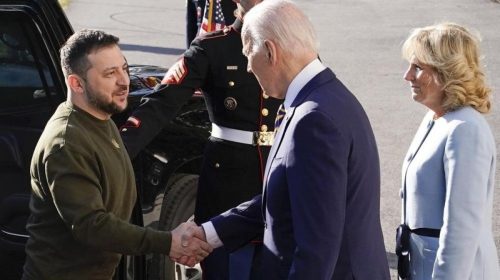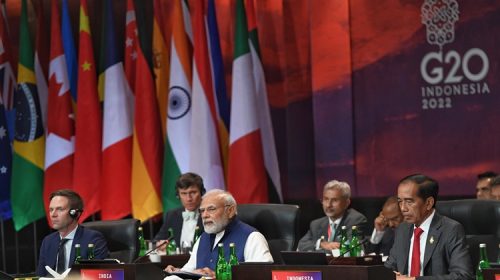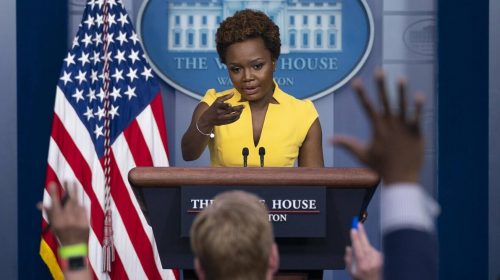Two more shootings of black men by police. More nights of riot-filled streets full of tear gas and faceless phalanxes of heavily armed police being showered with bottles and debris while looters run amok perverting peaceful protests.

This is America only weeks before picking a new president.Eight years after the election of Barack Obama – the first African-American chosen president of the world’s sole remaining superpower – hopes that he heralded a post-racial era have faded.

Instead, Hillary Clinton and Donald Trump, the starkly different rivals striving to succeed him in the Oval Office are both playing the race card – with scant pretense at subtlety – as they jostle for political advantage in the rage, anger and grief of a country still cleaved along racial lines.
Mr. Trump accuses the growing Black Lives Matter movement of inciting violence against law-enforcement officers. They are “essentially calling death to the police,” he said this summer after five police officers were killed by a lone gunman in the middle of mass protests in Dallas in July. “It’s time for our hostility against our police, and against all members of law enforcement, to end, and end immediately, right now,” the Republican presidential nominee said.
For Mr. Trump, the latest riots in Charlotte, N.C., are just more evidence of American decline on Mr. Obama’s watch. “You look at the level of hatred, the, you know, the rocks being thrown and everything happening,” he said Thursday after another night of mayhem. “You know, this is the United States of America. I mean, it’s so sad to see. But there’s just no unity. There has to be a unity message that has to get out, and it starts with leadership.”

Ms. Clinton, seeking a different moral high ground and appealing to a different slice of the voting public, has been eager to say “Black Lives Matter” just as Mr. Trump prefers “Blue Lives Matter” or “All Lives Matter.”
“Something is profoundly wrong when so many Americans have reason to believe that our country doesn’t consider them as precious as others because of the colour of their skin” Ms. Clinton said after the grim reality of Philando Castile, a young black man in Minnesota bleeding to death from a police gunshot in July while his girlfriend and her child watched.
After two more killings of black men in the past eight days, Ms. Clinton continued to walk the fine line that she hopes will hold the African-American vote she desperately needs to win in November without alienating too many whites who regard Black Lives Matter as a cover for crime and mayhem.

“There is still much we don’t know about what happened in both incidents,” Ms. Clinton said cautiously, adding: “We do know we have two more names to add to a list of African-Americans killed by police officers in these encounters,” she said. “It’s unbearable, and it needs to become intolerable.”
Whatever their differing views about Black Lives Matter – both a movement and a rallying cry – Ms. Clinton and Mr. Trump both know that black votes matter.
Unless Ms. Clinton can get the sort of turnout among African-Americans that Mr. Obama managed in key swing states – and the President plans to stump to help her – then Mr. Trump may have a path to victory even as he has alienated many minorities with his routinely inflammatory and racially tinged accusations.

All summer the rage and discontent has simmered, often expressed in profound, powerfully symbolic fashion, sometimes in mindless violence. At their conventions, both Republicans and Democrats sought advantage in the deeply intertwined issues of guns, security and racial profiling in a country where race still separates, still defines advantage and suspicion.
Given the thousands of police forces – many of them tiny, ill-trained and often doubling as municipal revenue raising outfits preying on the poor, mostly African-Americans, with hefty fines for petty offences – it is almost impossible to establish nationwide standards, let alone document every instance of racial disparity in policing.
Consider the radically different reactions of local authorities to the two killings of African-American men by police in the past eight days in Tulsa, Okla., and in Charlotte, N.C.

In Tulsa last Friday, Terence Crutcher, 40, was shot and killed with his hands up in broad daylight while a police helicopter hovered overhead and several officers trained their guns at him. Police Chief Chuck Jordan quickly released footage of the shooting and confirmed that Mr. Crutcher was unarmed and there was no weapon in his broken-down vehicle.
Tulsa Mayor Dewey Bartlett promised a full and fair investigation. “This city will be transparent, this city will not cover up, this city will do exactly what is necessary to make sure that all rights are protected,” he said. On Thursday, the police officer who fired the fatal shot was charged with first-degree manslaughter.
In Tulsa, there have been demonstrations but no violence.

After years of deception and stalling in places such as Chicago, where video of the killing of unarmed teenager Laquan McDonald was suppressed for months, the political response in Tulsa was precisely what groups like Black Lives Matter have been demanding: transparency and accountability.
In far more racially charged North Carolina, once a slave state, where the Confederate battle flag still flies twice a year atop the state legislature, Charlotte Police Chief Kerr Putney refused to make public the video of the shooting of Keith Lamont Scott, although Mr. Scott’s family did see the footage on Thursday.
Mr. Scott, 43, was either holding a book while waiting to pick up his son at a school bus stop or waving a gun when he was shot and killed by a black police officer Tuesday afternoon. That set off consecutive nights of protests that spiralled into riots, leaving more than a dozen civilians and police injured and the city’s downtown filled with tear gas, glass, blood and debris.

As for Mr. Obama, he has largely avoided or ignored the country’s defining racial divide. When he has intervened, it has been more in sorrow and sympathy than with any bold effort to change.
“There’s a big chunk of our citizenry that feels … they’re not being treated the same. And that hurts,” he said this summer. “This is not just a black issue. This is an American issue that we should all care about.”




